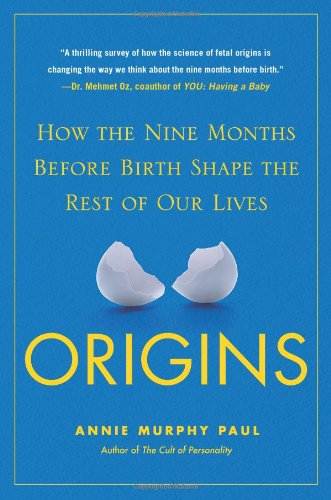Eating Fish During Pregnancy
I dive deep into the research, its strong currents pushing me first one way—fish is good!—and then the other—mercury is bad!—and finally surface with a seemingly obvious conclusion: eat fish, lots of it, just not the mercury-laden kind. This is harder than it sounds. Fish, to me, has meant a pink slab of tuna steak or a creamy slice of swordfish (or that coveted tuna-salad sandwich). Now I set about getting acquainted with the ocean’s other inhabitants: small fish at the bottom of the food chain, shellfish that trawl the ocean floor, vegetarian fish that dine on plants instead of fellow sea creatures. Soon, I’m finding all kinds of ways to eat fish: Sardines on buttered toast for breakfast (delicious with scrambled eggs). A snack of herring on crackers with a dab of Dijon mustard. For dinner, shrimp sautéed in butter with garlic and cayenne pepper. Catfish, breaded and broiled golden. Tilapia on the grill, with some mango salsa to perk up its admittedly anemic flavor. And anchovies slipped into everything: puttanesca sauce, pesto, spaghetti with garlic and oil. As I tuck into a snowy filet of flounder, squeezed with lemon and speckled with pepper, I think to myself: eating carefully can actually taste really good.
Notes:
Healthy for the baby, but complicated due to mercury.
Folksonomies: pregnancy fetal development diet
Taxonomies:
/food and drink/food/grains and pasta (0.446158)
/food and drink (0.402914)
/business and industrial (0.334386)
Keywords:
seemingly obvious conclusion (0.975646 (positive:0.413487)), coveted tuna-salad sandwich (0.901783 (positive:0.287332)), fellow sea creatures (0.845389 (neutral:0.000000)), admittedly anemic flavor (0.844358 (negative:-0.600212)), eat fish (0.661512 (positive:0.298780)), creamy slice (0.655783 (positive:0.455185)), strong currents (0.649164 (positive:0.479353)), tuna steak (0.639689 (positive:0.455185)), Pregnancy Healthy (0.637369 (positive:0.497008)), cayenne pepper (0.636833 (positive:0.250653)), mercury-laden kind (0.629578 (negative:-0.261936)), Dijon mustard (0.623582 (positive:0.709254)), pink slab (0.622793 (positive:0.455185)), snowy filet (0.620466 (neutral:0.000000)), vegetarian fish (0.601993 (neutral:0.000000)), small fish (0.600504 (neutral:0.000000)), food chain (0.597260 (neutral:0.000000)), puttanesca sauce (0.595852 (neutral:0.000000)), mango salsa (0.589793 (negative:-0.600212)), ocean floor (0.587572 (negative:-0.233161)), —and (0.512203 (positive:0.413487)), anchovies (0.385045 (negative:-0.412638)), pesto (0.378746 (positive:0.249657)), Sardines (0.377582 (positive:0.524488)), flounder (0.377443 (neutral:0.000000)), dab (0.375553 (positive:0.709254)), spaghetti (0.367529 (neutral:0.000000)), herring (0.365991 (positive:0.709254)), crackers (0.365634 (positive:0.709254)), inhabitants (0.365314 (positive:0.245902))
Entities:
food chain:FieldTerminology (0.742382 (neutral:0.000000))
Concepts:
Fish (0.983401): dbpedia | freebase | opencyc
Ocean (0.757776): dbpedia | freebase | opencyc
Seafood (0.712879): dbpedia | freebase | opencyc
Food (0.689984): dbpedia | freebase | opencyc
Forage fish (0.688998): dbpedia | freebase
Breakfast (0.683263): dbpedia | freebase | opencyc
Bread (0.660401): dbpedia | freebase | opencyc
Aquaculture (0.654538): dbpedia | freebase | opencyc





